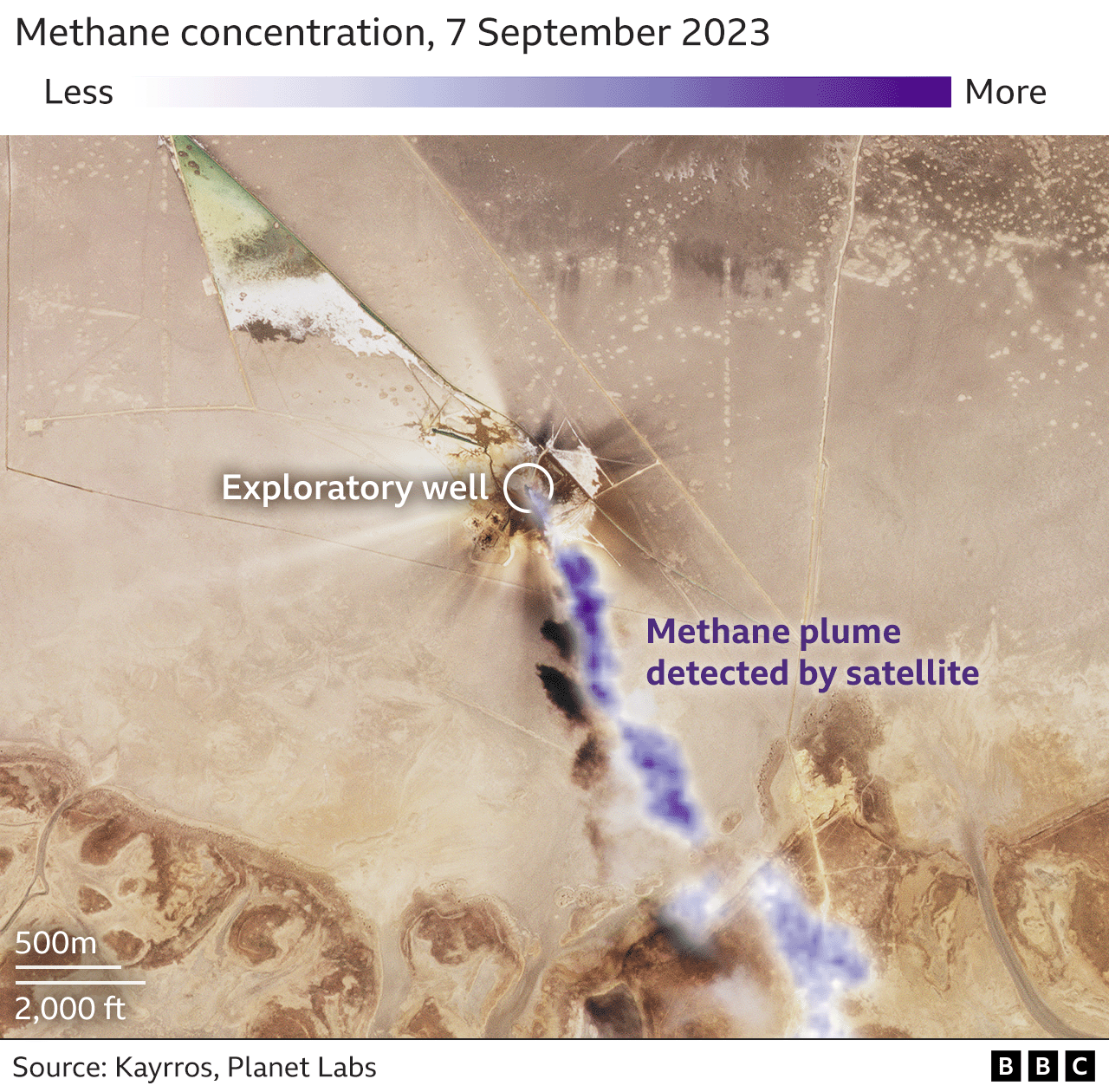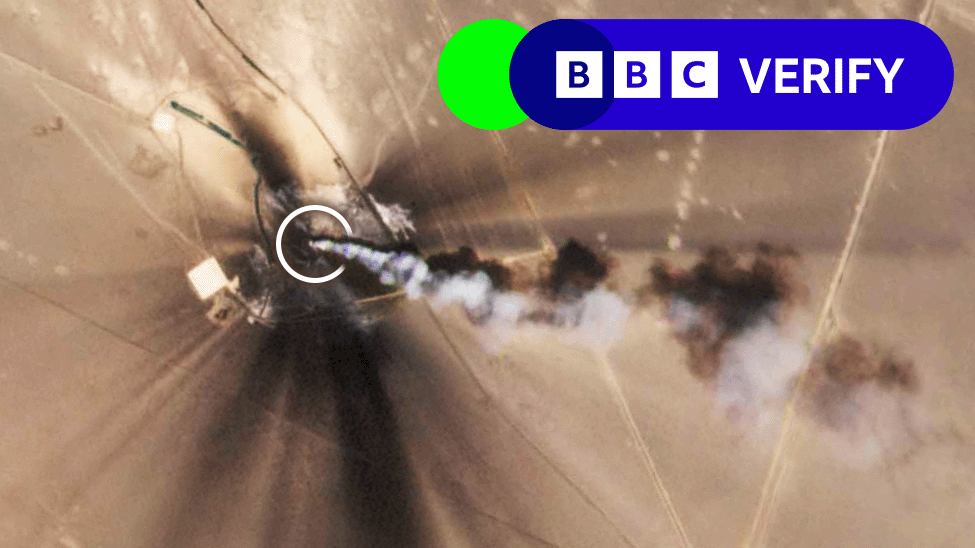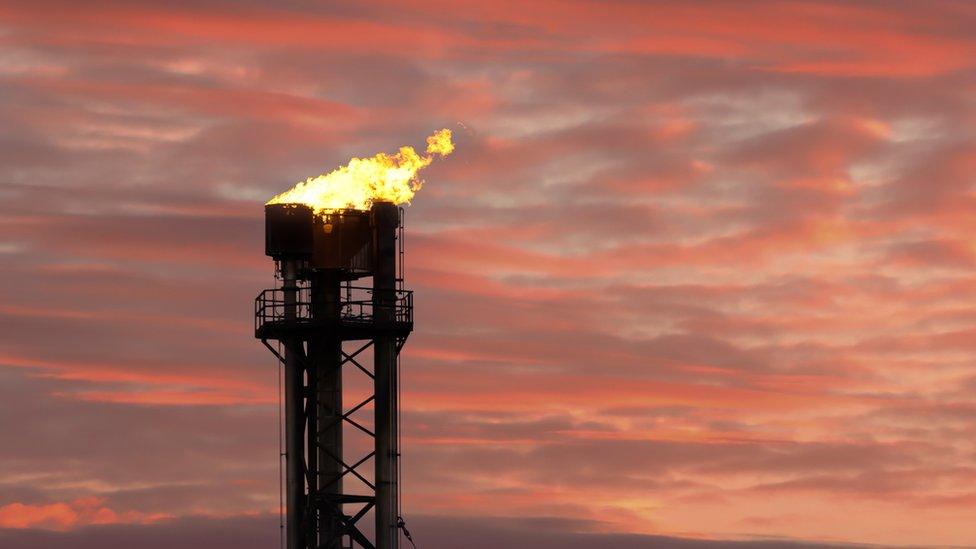Company fined over massive Kazakhstan methane leak
- Published
Satellite images show how the site of the leak changed over six months
The owners of a well linked to one of the worst methane leaks ever recorded are to be fined more than 350 million tenge ($774,000; £614,000), authorities have said.
Last week the BBC published new analysis showing thousands of tonnes of the greenhouse gas escaped from a well in southwestern Kazakhstan in 2023.
Buzachi Neft, the Kazakh company that owns the well, denies this.
But authorities say "violations of environmental legislation" took place.
The leak began in June last year, when a blowout was reported at an exploration well in the Mangistau region in southwestern Kazakhstan. It went on until Christmas Day.
While methane is invisible to the naked eye, some satellites are able to track plumes of the gas, external.
By using five different satellite instruments, scientists detected high concentrations of methane on 115 separate occasions in that six-month period.
They estimated, external that 127,000 tonnes of methane escaped from this single well.
That is the equivalent to greenhouse gas emissions from more than 717,000 petrol cars over a year.

Methane is a far more potent, external greenhouse gas than carbon dioxide.
In a statement released on Monday, external, the Department of Ecology in the Mangistau region said it found "excessive amounts of methane in the air" between June and December 2023.
It also said it carried out an "unscheduled inspection" in January.
While pollutants were found in the soil, the department told the BBC no further methane was found in the air.
Recent satellite readings appear to back this up.
"Three subsequent observations on 1, 12 and 14 January 2024 confirm the definitive cessation of the leak," said Luis Guanter from the Polytechnic University of Valencia, who helped verify the leak.
According to "preliminary calculations" by the department, Buzachi Neft faces a fine of more than 350 million tenge.
The company has also been ordered to come up with a "remediation programme" to deal with the environmental impact.
Buzachi Neft did not respond to our request for comment.
But the company had previously told the BBC it denied any "substantial amount" of methane had leaked from the well.
An official investigation into the causes of the accident - led by Atyrau's Industrial Safety Committee - found that Buzachi Neft failed to appropriately supervise the drilling of the well.
It also blamed Zaman Energo, a subcontractor, for numerous failures in the drilling process. Zaman Energo declined to comment.
At last year's COP28 climate summit, Kazakhstan joined the Global Methane Pledge, external - a voluntary agreement by more than 150 countries to slash their methane emissions by 30% by 2030.
Additional reporting by BBC Monitoring's Dilmurad Avalbaev.

Related topics
- Published16 February 2024

- Published14 February 2024
